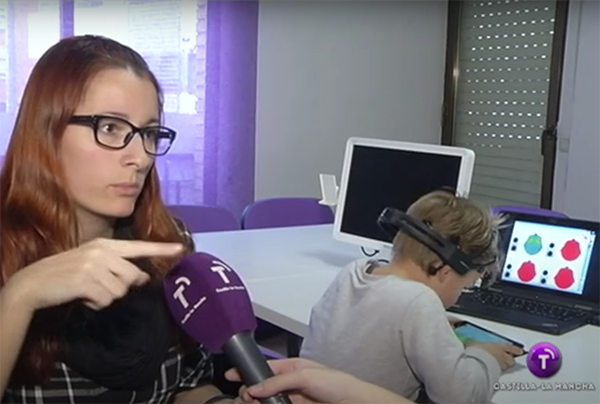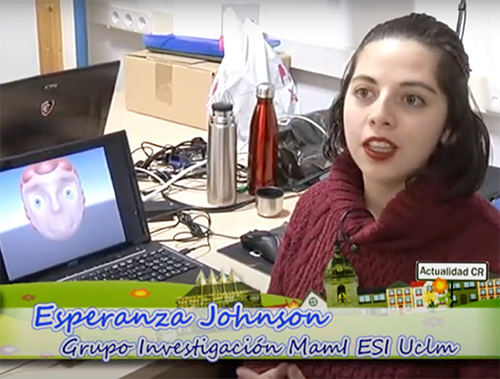Cognitive Evaluation of Interactive Applications
Biometric analysis (EEG, bio-signals, eye-tracking) of interactive applications for objective measures of usability, user experience and cognitive performance
Videogames for selfcare and wellbeing
Serious games for health and gamified applications to support diagnosis, treatment and monitoring of diseases, and support special needs
Assistive & Interactive Artefacts (Avatars, Robots and Toys)
Embodied and interactive agents with cognitive and affective capacities for applications in health (accompaniment, early diagnosis, home assistance, etc.)
Cognitive evaluation and training
Development of interactive applications (video games, VR, robots) for the effective and scientifically proven improvement of cognitive skills
What we do
Serious games focus on goals beyond pure entertainment. The term has traditionally been associated with games intended for educational purposes, although the focus can be much broader. In our case, we are researching health games in different aspects that include their use for diagnosis, treatment, monitoring and training within the framework of health and well-being. One of the most productive lines is serious games for cognitive evaluation. We have gone deeper into how to develop multimodal interactive systems that achieve contrastable and sustained training of cognitive skills over time. To this end, several interactive systems are developed, mainly in the form of video games, which enhance skills such as attention, concentration, reflexes or memory and are validated with techniques based on neuroscience and on quantitative analysis of Electroencephalographic (EEG) signals.

Video games for cognitive rehabilitation
TV report - January 2016 (Regional TV - Spanish)

Can video games help the teenage brain?
TV report - June 2018 (Local TV - Spanish)
